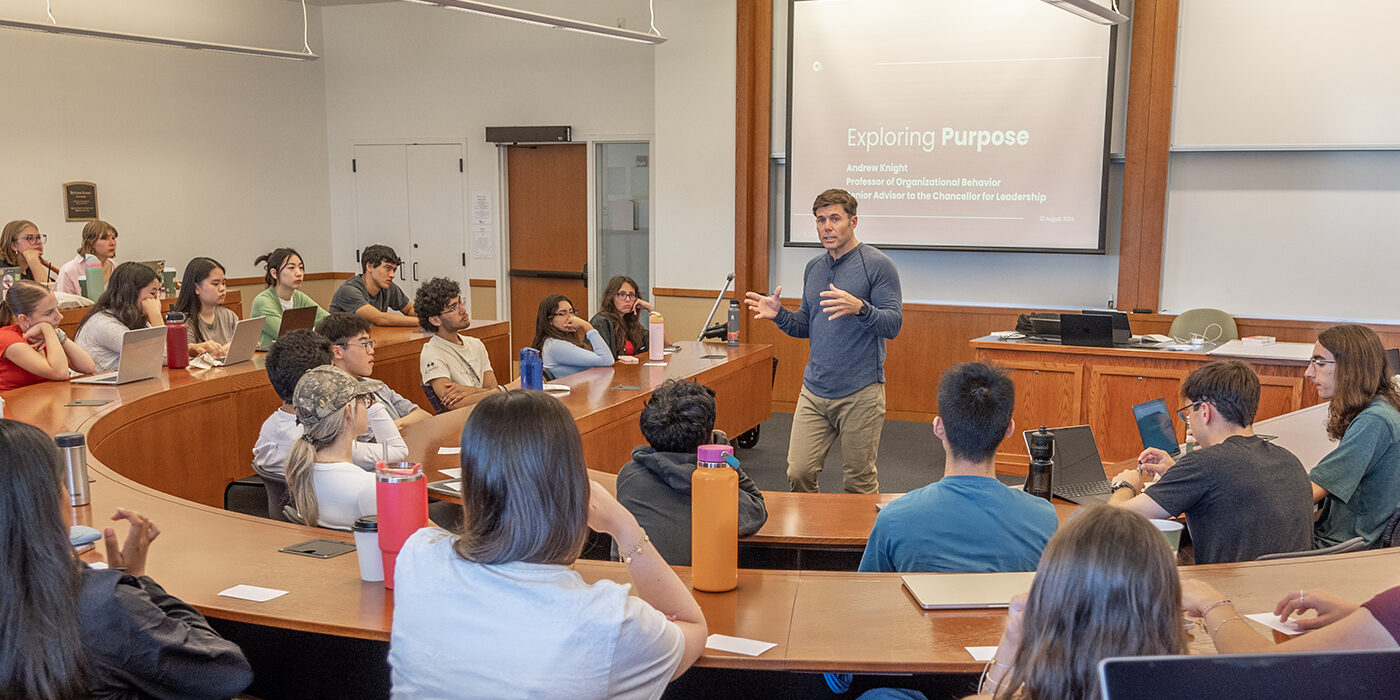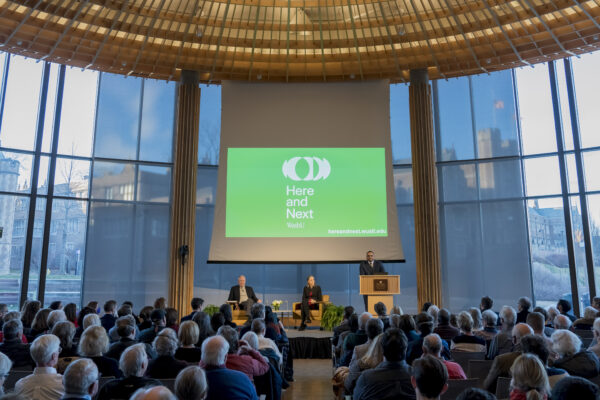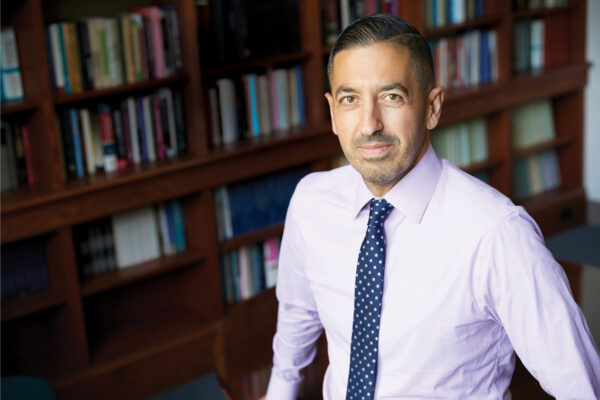“Anyone can be a leader,” says Andrew Knight, a senior adviser to the chancellor for leadership. “It’s not about formal status. Everyone has the potential to have a positive impact — to energize and bring people together.”
Fostering leadership potential is a WashU priority, which was enhanced in 2024 by alumnus George Bauer and his wife, Carol Bauer, through a $20 million gift that created the George and Carol Bauer Leaders Academy.
“Everyone has the potential to have a positive impact — to energize and bring people together.”
Andrew Knight
Chancellor Andrew D. Martin says that leadership is not about holding office or positions of power, but about influencing and energizing others to reach a common goal. And the Bauer Leaders Academy is offering students opportunities to build such leadership skills both inside and outside the classroom.
“We have a bold goal to become the nation’s premier university for developing leaders of character and conviction,” Martin says. “Students who participate in Bauer Leaders Academy programs will hone their leadership capabilities, explore their purpose and learn how to lead in service of the greater good. Through its programs, curricular enhancements, training and research, the academy will catalyze our mission to graduate changemakers prepared to better society.”
While many U.S. colleges and universities have leadership centers, the Bauer Leaders Academy is the first such program to engage every under–graduate student. Over time, the program will expand beyond undergraduates to also serve graduate students. Opportunities range from individualized leadership coaching to cohort-based workshops to classes that incorporate leadership development into the curriculum.
Leadership development is one of the six priorities laid out in “Here and Next,” WashU’s strategic plan (read an update on Here and Next’s progress). Knight, the executive director of the Bauer Leaders Academy, says the academy — with support from Provost Beverly Wendland and Anna Gonzalez, vice chancellor for student affairs — is committed to providing leadership opportunities throughout a student’s time on campus, starting with Bear Beginnings orientation. Last fall, all first-year students participated in a leadership session, during which they learned about leadership, completed strength assessments and wrote their own purpose statements.
“If you wrote about a real desire to leverage your academic success to have a positive impact on your community and society, how would the pursuit of a career in architecture, for example, enable you to do that?” Knight asks. “During orientation, we emphasize that many students change course over time, but their general purpose statement can be this North Star they are pursuing throughout their life.”
Julia Macias, the Bauer Leaders Academy’s director of student leader development, expects programming to expand as students recognize leadership as a realizable competency, not an inborn trait. During the fall 2024 Bear Beginnings workshops, most students were reluctant to identify themselves as effective leaders. To assess the impact of its programs on students’ sense of identity and efficacy as leaders, the academy regularly surveys students.
“The process starts with purpose,” Macias says. “For a lot of these high-achieving students, the goal has been to get good grades so they can get to this point. But purpose is something bigger than academic achievements. The students were hungry for that conversation — to think deeply about how their values connect with what they want to do.”
Zain Meer is a first-year student in Arts & Sciences. He liked how the orientation session emphasized that good leaders are honest and trustworthy as well as strong communicators and relationship builders.
“You could go to college for four years and learn all about computer science or biology but not have to think about what it means to be a leader,” Meer says. “Opportunities exist to become a leader of a club or an organization, but it’s entirely dependent on you as the individual to take a step forward. I like that WashU recognizes leadership is for everyone.”
Knight emphasizes how leadership is ubiquitous: “What makes WashU unique is that our programs are not limited to a single domain. And that’s because we’re not interested in just transforming people into leaders in their careers or in their extracurriculars; we are committed to leadership development as an important element of a life well lived. These skills and values permeate every facet of life, whether you’re starting a new business or working in pursuit of a community development goal.”



